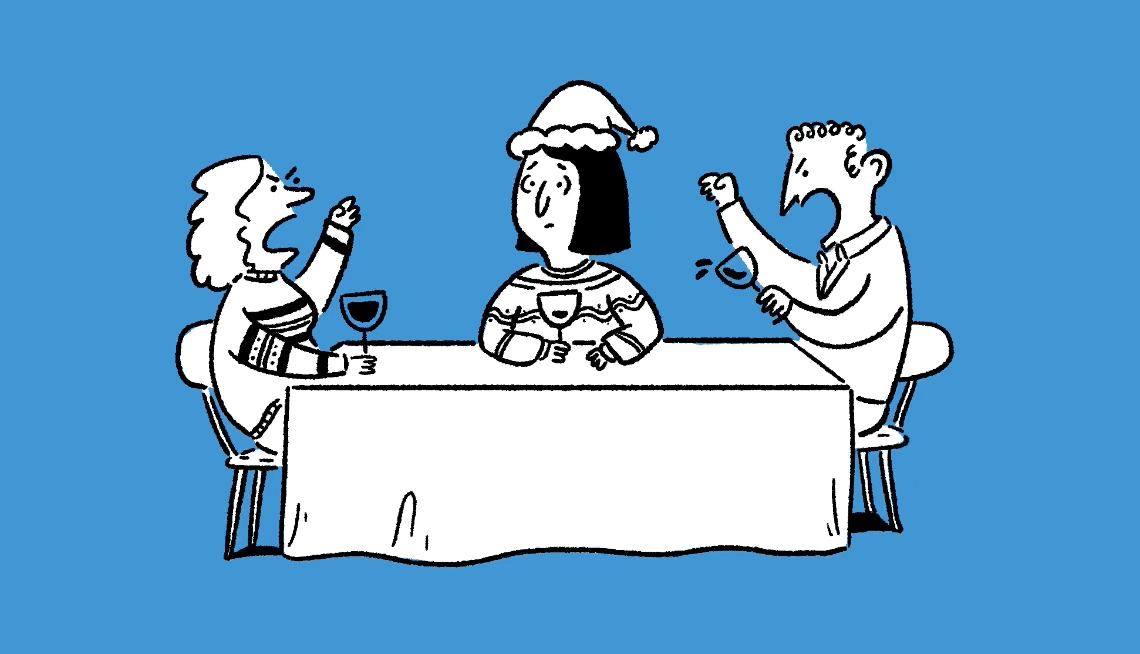AARP Hearing Center


Is there any way to keep my blood pressure down especially during the holidays, without taking medication? Mine is borderline high now.
Getting together and celebrating the holidays with family and friends is important for our emotional well-being. But it’s also the season when we tend to drink alcohol, eat rich, salty foods, experience more stress, and forgo our usual exercise routines. For the millions of Americans like you who have borderline high blood pressure, I encourage you to go out and have fun, but please stay aware and take some precautions.
To begin, let’s look at what’s going on when we talk about borderline high blood pressure, also called prehypertension. Blood pressure is the force of blood against your arteries when your heart pumps. Increased blood pressure is especially common as we age because our blood vessels naturally get stiffer. An ideal measurement is below 120/80. Borderline high, or elevated, is around 120-129/less than 80. If it’s higher than that, you have hypertension, or high blood pressure.
I recommend checking your blood pressure regularly with an in-home monitor, which can help you keep track of your day-to-day numbers. If your blood pressure remains within this range and your risk of other health problems is low, you can continue to avoid medication by paying attention to your lifestyle choices. I think most people know this, but it can be difficult to do, especially around the holidays.


Ask Dr. Adam
Adam B. Rosenbluth, M.D., is an internist and cardiologist in New York City. Each Monday, he’ll weigh in on your questions about how to make your body work better for you. His AARP book will be published in 2027.
Making small changes can have a big effect. Minimizing your salt intake is a good example, because it’s something you can track. The American Heart Association recommends older people limit their sodium to no more than 1,500 milligrams or less a day. Table salt is about 40 percent sodium.
Rather than the salt shaker, many people get the majority of their sodium from processed and packaged foods. So check the Nutrition Facts Label on your store-bought foods and opt for lower-sodium options. What happens if you regularly snack on salted chips or nuts and cut them out for just one week? You’ll see your blood pressure coming down.
Drinking water helps to move salt out of your body. That’s why medicines like diuretics are often prescribed for blood pressure control. They work by forcing the kidneys to release salt. Water also helps push salt out through your kidneys. The current recommendationfor total water intake (meaning water contained in other beverages counts), is 13 cups per day for men and nine cups a day for women.































.jpg?crop=true&anchor=13,195&q=80&color=ffffffff&u=lywnjt&w=2008&h=1154)






























You Might Also Like
25 Easy Ways to Eat Less Salt
Tips for cutting back on sodium25 Great Superfoods for Longevity
Delicious foods tied to lower risk of disease and death
19 Heart-Smart Choices to Make Throughout Your Day
Treat your heart right morning, noon and night with these easy, research-proven, expert-endorsed ideas